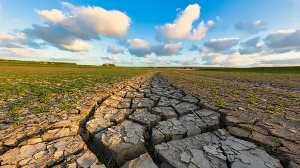 Developed nations have been urged to commit at least US$5.9 trillion by 2030
Developed nations have been urged to commit at least US$5.9 trillion by 2030
As global leaders prepare for the upcoming climate talks in Baku, Azerbaijan, African climate finance practitioners have issued a rallying call for a bold new approach to climate finance, urging developed nations to commit at least US$5.9trillion by 2030.
The call, made during the recent consultation ahead of the African Group of Negotiators meeting in Mombasa, Kenya, highlights Africa’s push to reshape the financial architecture supporting climate adaptation, mitigation and a just transition.
The consultation concluded that Africa must take a proactive role in shaping the future of climate finance. The new finance goal presents an opportunity for Africa to assert its agency and align the goal with its real needs, realities and demands.
In line with this, the gathering of experts emphasised the urgency of addressing the continent’s growing climate-related needs, with a particular focus on securing public finance from developed countries.
But they argued that these funds should not be tied to debt instruments, which could further strain the financial stability of developing countries already burdened by significant debt.
They therefore stressed the need for developed countries to commit at least US$5.9trillion by 2030. This figure is based on the growing needs and priorities of developing countries to finance adaptation, mitigation, a just transition, loss and damage.
The experts also urged developed countries not to derail this year’s climate talks with discussions on the contributor base. Instead, they should adhere to the UN Climate Convention and Paris Agreement, which place the responsibility to provide and lead the mobilisation of finance to support climate action on these countries.
“If the new climate finance goal is set based on the limited politics of today, the world will fail to rise to the climate challenge,” said Iskander Erzini Vernoit of the IMAL Initiative for Climate & Development.
He stressed that the commitment must go beyond the US$100 billion pledged in previous agreements, calling for over a trillion dollars annually in international public finance to align with scientific demands.
The African delegation’s stance reflects a broader frustration with the current climate finance framework, which many believe falls short of addressing the realities faced by vulnerable nations.
Samson Mbewe of South South North cautioned against the use of market-related loans masquerading as climate finance – emphasising the need for grants, particularly for adaptation efforts.
“The New Collective Quantified Goal (NCQG) must steer clear of debt instruments, especially those that masquerade as climate finance and yet are market-related loans,” Mbewe said. “Developing countries are in dire need of grants. Loans of any sort would need a higher degree of concessionality.”
He asserted that with many developing countries already burdened by significant debt, more through ‘climate finance’ could deepen financial struggles rather than help. “It is essential that we find ways to support climate action without increasing debt. We also need to remember that developed nations have a responsibility to help those who have been most affected by climate change.”
Given this, he said the NCQG should focus on fair and sustainable solutions that genuinely support global efforts without creating additional financial strain.
Echoing these sentiments, Climate Finance Expert Julius Mbatia stressed the critical need for a finance goal that truly reflects the needs of developing countries. He pointed to Africa’s demand for US$6.5trillion by 2030, arguing that anything less would signal a lack of urgency and ambition.
“A quantum that does not constitute public finance at scale in grants for adaptation, loss and damage will not resonate with the climate realities of developing and vulnerable countries,” Mbatia noted. He added “A quantum that insists on market rate loans will do more harm to already highly indebted vulnerable nations in regions such as Africa.”
Eva Peace Gatwa of Loss and Damage Youth Collaboration also stressed the need for a common definition of climate finance. “There will always be mistrust when it comes to climate finance provided, and a high risk of humanitarian aid, ODA finance and other finance being reported as climate finance. Climate finance definition equals transparency and accountability,” she asserted.
Julius Ng’oma of Civil Society Network on Climate Change (CISONECC) in Malawi acknowledged the difficulties in accessing financial resources mobilised under the UNFCCC financial mechanisms. He attributed these challenges to complex procedures, requirements and timelines, calling for urgent improvements.
Adrian Chikowore from the Institute for Economic Justice added that private sector-led finance should not be the core of climate finance, as it often overlooks the needs of those most affected by climate change – offering piecemeal solutions that fail to address systemic inequities.